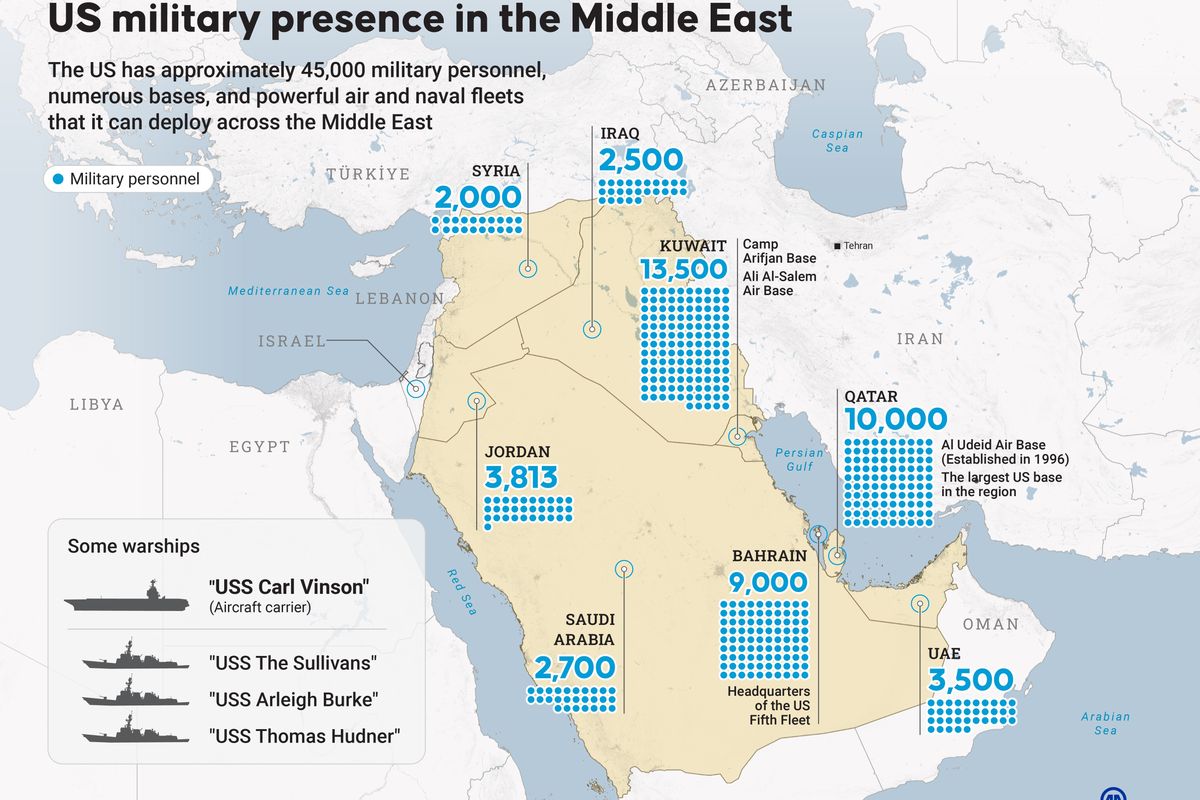This piece was first published in Just Security
OPINION — The International Court of Justice recently ordered provisional measures against Israel in response to a complaint brought by South Africa under the Convention on the Prevention and Punishment of the Crime of Genocide.
While the ruling does not require Israel to desist from further military operations in Gaza, Israel is admonished to adhere closely to its obligations under the treaty, as well as to allow more humanitarian aid into Gaza.
Given the open-ended nature of the Court’s ruling on provisional measures, Israel’s compliance with the Court’s order will depend critically on understanding what the prohibition on genocide means under the treaty and what to infer from the mounting casualty numbers in Gaza relative to that prohibition in the context of the current armed conflict.
For Israel to violate the Convention, it must be intentionally seeking to harm or destroy the Palestinian people as a group, a proposition for which there is no actual evidence. Any appearance that Israel is actually targeting civilians stems in significant part from the fact that Hamas is using Palestinian civilians as human shields in myriad ways. Hamas’ extensive tunnel system, for example, shows a subterranean terror network constructed directly underneath Gaza’s civilian infrastructure.
It's not just for the President anymore. Cipher Brief Subscriber+Members have access to their own Open Source Daily Brief, keeping you up to date on global events impacting national security. It pays to be a Subscriber+Member.
Hamas built the tunnel system this way intentionally in order to use hospitals, schools, mosques, refugee camps, and other sites of civilian life as cover for its operations, as well as for protection in the hope of exploiting Israeli hesitancy to strike civilian targets and to galvanize public sentiment when Israel does strike. And it has been widely reported that Hamas discouraged or prevented Palestinians from relocating to safety on numerous occasions in the face of Israeli warnings of impending strikes.
There are in fact two sets of hostages in the current crisis: the roughly one hundred Israeli hostages that remain captive in Gaza and the Palestinian civilians tragically caught in between Israel’s attempt to defend itself and Hamas’s underground infrastructure. It is ironic and grotesque that Israel is the party that stands accused of genocide. As Israeli legal advisor Tal Becker pointed out before the Court, “if there have been acts that may be characterized as genocidal, then they have been perpetrated against Israel” in virtue of the attacks on October 7. But there is another sense in which Hamas could be said to be committing genocide — namely against the Palestinian people. “Genocide by human shielding” might be the right description of Hamas’ use of civilians.
Both represent acts that could “plausibly” (to use the ICJ’s language) fall under the Genocide Convention. This is not mere hyperbole. Hamas’s leadership has revealed the organization’s willingness to sacrifice multitudes of Palestinians for their cause. Hamas leader Ayman Shanaa, for example, said: “Let us examine history. Let us look at Algeria, Vietnam, and other countries that we liberated. How many did they sacrifice? Millions of martyrs. Therefore, I am saying that there is a high price to pay on the path of resistance, and we will bear this price.” Another Hamas leader admitted the tunnels were built solely to protect fighters, not for the safety of civilians. What is that but the destruction of a group in whole or in part as a means to an end?
What reasons do we have to believe that Israel is not targeting civilians?
Israel provided extensive evidence to the Court of its civilian harm mitigation measures, measures akin to what the U.S. government seeks to develop and institutionalize pursuant to the Civilian Harm Mitigation and Response Action Plan (CHMR-AP) and its recently adopted Department of Defense Instruction on CHMR. The precautions Israel is using are consistent with DoD’s objectives in developing the CHMR-AP and should be considered “best practices.” Among these methods are distributing leaflts, placing phone calls, and sending text messages to warn civilians of impending operations as well as distributing civilian harm “hotzone” maps that make clear, down to individual blocks and buildings, where civilians can move in order to significantly reduce the likelihood of being caught in crossfire or bombardments. While the civilian displacement required to heed these warnings is onerous, these procedures do save lives and most notably are inconsistent with an intent to kill or harm civilians. At the same time, such efforts set back Israel’s counterattack, since they warn not just to Palestinian civilians, but also Hamas of impending operations. Nevertheless, Israel continues to issue such warnings despite the military impairments they entail.
Subscriber+Members have a higher level of access to Cipher Brief Expert Perspectives and get exclusive access to The Dead Drop, the best national security gossip publication, if we do say so ourselves. Find out what you’re missing. Upgrade your access to Subscriber+ now.
The US-led coalition used similar techniques fighting ISIS in Iraq and Syria from 2014 to 2019. For example, the United States was able to leverage the communication capabilities of the Iraqi Government and International Relief Agencies to inform the civilian population in places like Mosul. We also conducted extensive joint planning between military forces and the humanitarian community to identify civilian movement corridors and assembly locations and de-conflicted them with ground and air operations.
In other urban areas like Raqqah and smaller villages along the Euphrates Valley, we frequently slowed or stopped operations to work closely with local tribal leaders to minimize the impact of military operations on the population and infrastructure. Despite our considerable efforts, it was impossible to completely prevent civilian casualties and collateral damage. Like Hamas, ISIS readily made use of the population and civilian infrastructure to shield its operations and impact the conduct of military operations. Yet the United States was not accused of genocide before the ICJ for its operations against ISIS.
The challenge Israel faces is considerable: mitigating civilian harm in the face of extensive human shielding practices, including Hamas’s elaborate tunnel system, is a near-impossible task. And Hamas knows this. Every time Israel engages in restraint because of the presence of civilians is a win for Hamas, but every time Israel regrettably kills or harms a civilian as part of collateral damage is an even greater win for Hamas, given its objectives in the information space.
Israel does bear the legitimate burden of having to demonstrate to the world at large that its military operations obey the principle of proportionality: the tragic loss of civilian life in Gaza must be justified based on the balance of military advantage over the amount of collateral damage being sustained. This is not directly relevant to the ICJ process, however, since the Court has jurisdiction only over claims of genocide, not over assertions of lack of proportionality. But by shielding its fighters deep under civilian infrastructure, where IDF forces cannot or dare not penetrate and ordinary weaponry does not make a dent, Hamas has (intentionally) created a situation where Israel can defend itself only if it uses heavy enough explosives to destroy the tunnel infrastructure.
This set up increases the amount of collateral damage relative to military advantage. In other words, a greater number of civilians would be endangered in order to eliminate the same number of Hamas fighters, thus increasing the ratio of civilian to combatant casualty — posing a profound strategic dilemma for Israel.
Since a 2001 essay by Charles Dunlap, the term “Lawfare” has been used for dilemmas such as that faced by Israel in Gaza, namely the use of law as a weapon of war to achieve military aims not directly won through battle. In this case, lawfare involves two tactics: First, the use of legal concepts to prevent Israel from lawfully protecting itself without having to resort to the use of significant force to accomplish this same aim. Second, the very filing of the ICJ complaint against Israel is also an instance of lawfare.
That South Africa was willing to lend itself to this exercise in lawfare before the ICJ is in retrospect unsurprising, given the proximity that South Africa appears to bear towards Hamas. On the very day of the October 7 attack, South Africa issued a statement that appeared to blame Israel, as the Israeli legal team noted before the ICJ. The statement also called for an immediate cessation of any hostilities, seemingly denying Israel’s right to respond in self-defense. That South Africa simply denies that Israel has a right to self-defense against Hamas was clear from its statements to the Court. As the South African Delegation said: “What Israel is doing in Gaza, it is doing in territory under its own control. Its actions are enforcing its occupation. The law on self-defence under Article 51 of the United Nations Charter has no application.”
Moreover, ten days after the October 7 attacks, the South African Foreign Minister Naledi Pandor called Hamas chief Ismail Haniyeh, the purpose of which call is disputed, but which Haniyeh claimed was to lend support. And though the South Africa-Hamas efforts did not succeed in forcing Israel to accept a unilateral ceasefire, the ICJ decision suggests that the Court will unintentionally lend itself to the efforts of terrorist organizations to gain military mileage against states by accessing the Court through sympathetic state partners.
One final note for those who have thought South Africa spoke with moral vision on the topic of genocide. Within the same month before filing its complaint before the ICJ, South Africa was warming its relations with accused war criminals. That December, “President Cyril Ramaphosa played host to Muhammad Hamdan Dagalo, a Sudanese warlord whose Janjaweed militia and its successor are accused of genocide and war crimes in Darfur,” as The Economist noted, and South African officials were praising China for its treatment of ethnic minorities in Xinjiang, as Ken Roth and others have pointed out. Moreover, South Africa’s application to the ICJ, which highlights the responsibility of third-party states to prevent genocide, makes no mention of the clear obligation all states have to counter Hamas’s genocidal campaign. Indeed, South Africa’s application hardly mentions Hamas at all.
While the question of whether Israel is committing genocide in the war will not be settled for many years, the ICJ provisional measures signal that Hamas is at the very least winning the information war it set out to wage. Ensuring that Israel cannot defend itself without killing Palestinian civilians in large numbers, and then having a friendly state insist that that court rule Israel’s self-defensive actions illegitimate are precisely the spoils of the information war Hamas was seeking. The ICJ risks its own legitimacy by playing into the hands of a terrorist organization to disable the victim state from exercising its legal right to defend itself properly under international law.
Read more expert-driven national security insights, perspective and analysis in The Cipher Brief
















